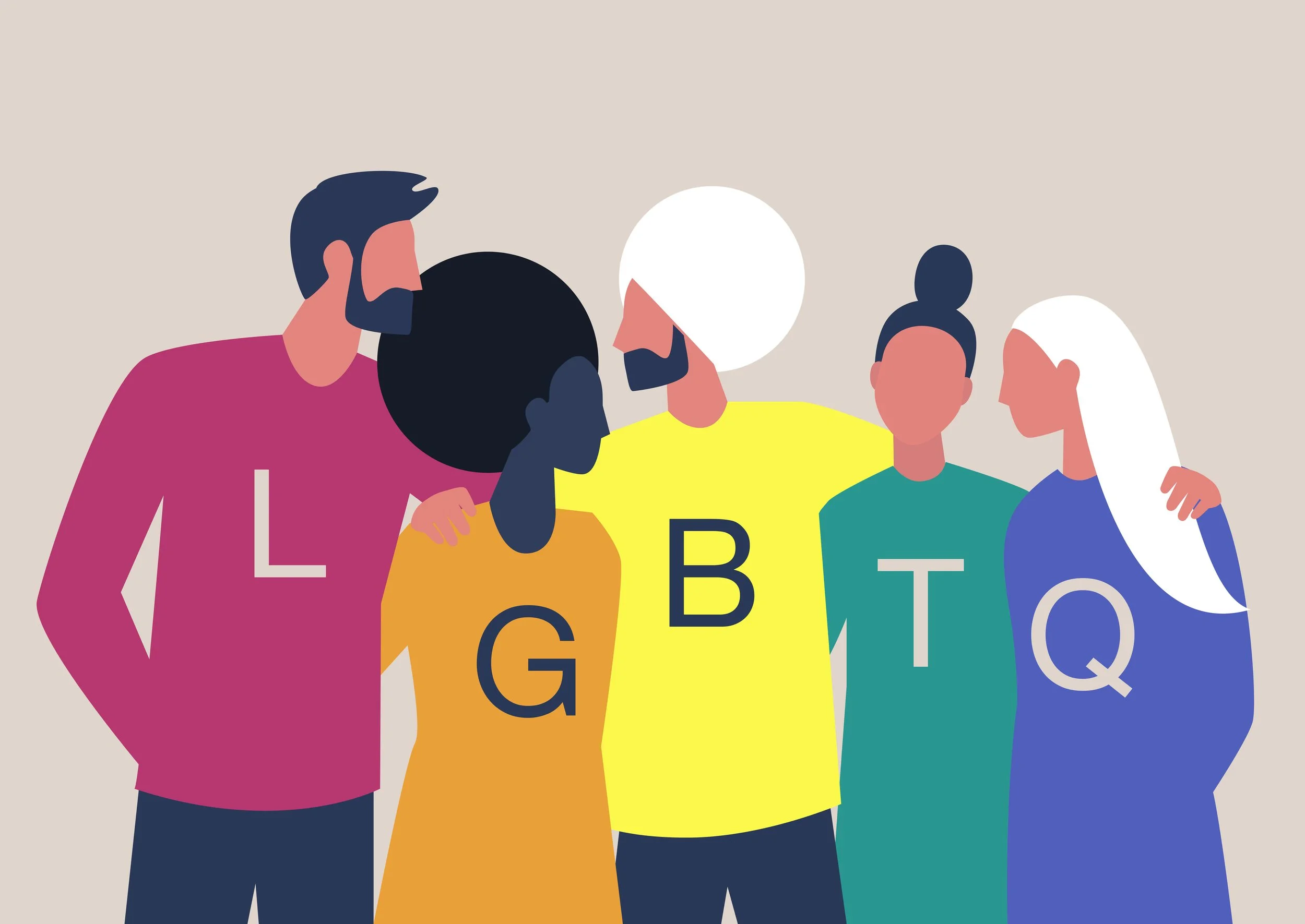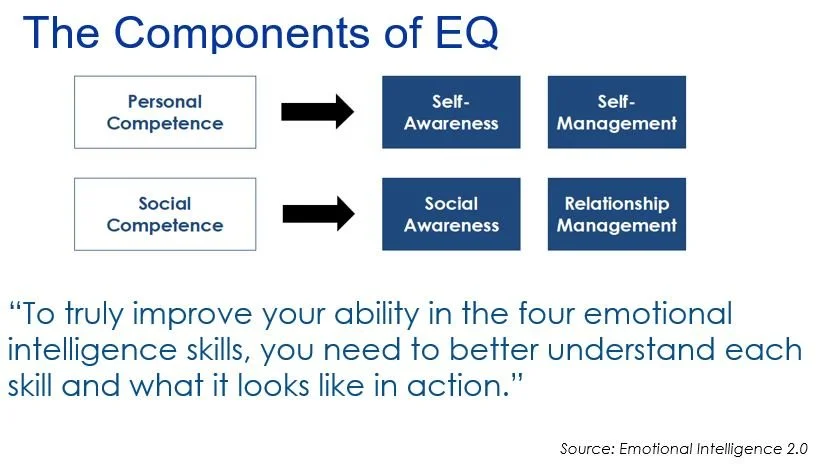LGBTQIA+ Emotional Intelligence
I have taught Emotional Intelligence (EQ) for Harvard University's Harvard Ed Portal, and I administer many Emotional Intelligence Assessments and tools for coaching and leadership development including:
Mayer-Solovey-Caruso Emotional Intelligence Test (MSCEIT)
Emotional Quotient Inventory (EQ-i 2.0) and EQ 360
Emotional Intelligence 2.0
What is Emotional Intelligence?
Authors Dr. Travis Bradberry and Dr. Jean Greaves define emotional intelligence in their book Emotional Intelligence 2.0 as "The ability to recognize and understand emotions in yourself and others, and to use this awareness to manage your behavior and build positive relationships." In their book, they provide this model:
What is different about LGBTQIA+ EQ?
I have facilitated workshops on LGBTQIA+ EQ for clients' LGBTQ+ PRIDE Employee Resource Groups (ERGs) and corporate events. My research to answer this question uncovered the following findings:
In general, employees at higher levels of the organization tend to have higher levels of EQ.
LGBTQIA+ employees at higher levels in the organization tend to have higher emotional intelligence than LGBTQIA+ employees at lower levels of the organization.
People with a high level of EQ have a better defined sexual identity.
The level of development of EQ influences the formation of sexual identity.
LGBTQIA+ people who are open to others regarding their own sexual orientation incorporate public and private identity into a unitary image.
I found these findings eye-opening and interesting in how the higher the person’s EQ, the more open LGBTQIA+ employees are with having a strong defined sexual identity. Their level of EQ development influences their formation of their sexual identity and those with a higher EQ have a public and private identity that is unified. This seems to support LGBTQIA+ employees having to cover less, and to be their authentic selves. We know from significant research about under-represented populations and Inclusion & Belonging in general, that when it feels safe to be our authentic selves, we are more likely to take risks, innovate, and share new ideas.
If your business would benefit from a keynote or workshop on Emotional Intelligence or LGBTQ+ Emotional Intelligence, LET'S CONNECT
Sarah Scala provides Inclusion and Belonging consulting for organizations to support your business strategy and evolving culture.
Learn more about Sarah Scala, and her background as a keynote speaker.
Sources:
Bradberry, Travis, and Jean Greaves. 2009. Emotional Intelligence 2.0. San Diego, CA: TalentSmart.
Góis, Duarte, Pinheiro, & Teixeira, (2016). Sexual Orientation Diversity Management in Brazil. In Köllen, T. (Ed.), Sexual Orientation and Transgender Issues in Organizations (pp. 493-512). Switzerland: Springer Publishing. https://doi.org/10.1007/978-3-319-29623-4
Human Rights Campaign 2022 Equality Index Criteria: https://www.hrc.org/resources/corporate-equality-index-criteria
LGBTQ+ voices: Learning from lived experiences, McKinsey & Company, June 2020, https://www.mckinsey.com/business-functions/organization/our-insights/lgbtq-plus-voices-learning-from-lived-experiences
Palmer, J. S. (2019). Emotional Intelligence and Homophobia. Wake Forest Law Review, 54(4), 1135–115.
Mîndru, M. A., and Nǎstasǎ, L. E. (2017). The relation between emotional intelligence, sexual identity and sexual orientation. Bull. Transilvania Univ. Brasov Series VII Soc. Sci. Law 10, 155–164. https://media.proquest.com/media/hms/PFT/1/F9Td4?_s=iuXRzJ61yUp3OZFxw7ci%2B5WcN94%3D (accessed May 1, 2021)
Sarah Scala Consulting- Blog, Emotional Intelligence: The Key Skill for 2021 https://www.sarahscala.com/blog/2020/1/23/emotional-intelligence-the-key-skill-for-2020
Social-Emotional Learning As A Problem-Solving Tool, https://elearningindustry.com/social-and-emotional-learning-problem-solving-tool
The Business Impact of LGBT-Supportive Workplace Policies, UCLA School of Law - Williams Institute, May 2013, https://williamsinstitute.law.ucla.edu/publications/impact-lgbt-supportive-workplaces/
U.S. Chamber Foundation, Business Success and Growth Through LGBT—Inclusive Culture, https://www.uschamberfoundation.org/sites/default/files/Business-Success-Growth-LGBT-Inclusive-Culture-FINAL-WEB.pdf
Vaughan, M. D., & Rodriguez, E. M. (2014). LGBT strengths: Incorporating positive psychology into theory, research, training, and practice. Psychology of Sexual Orientation and Gender Diversity, 1(4), 325–334. https://doi.org/10.1037/sgd0000053



